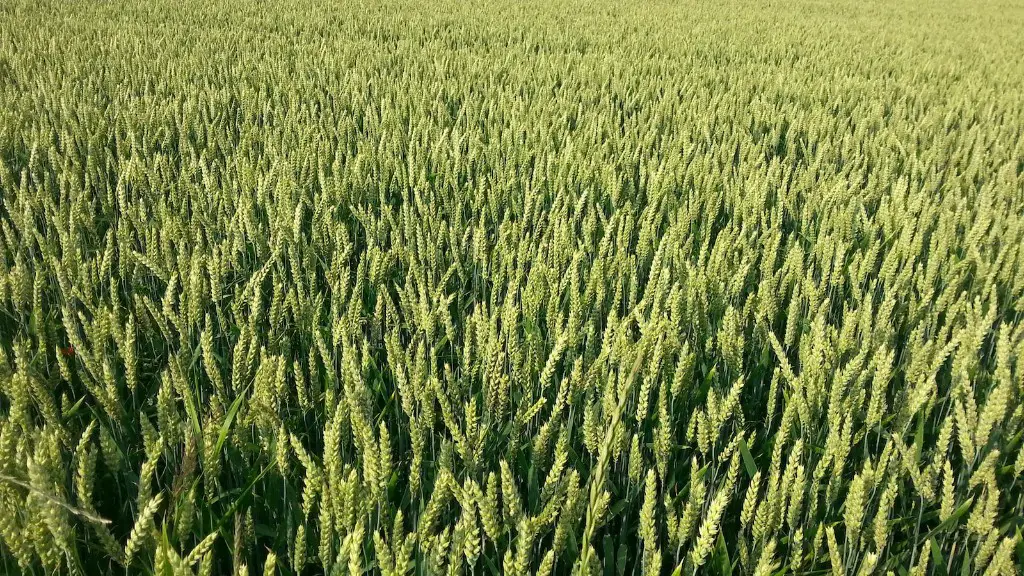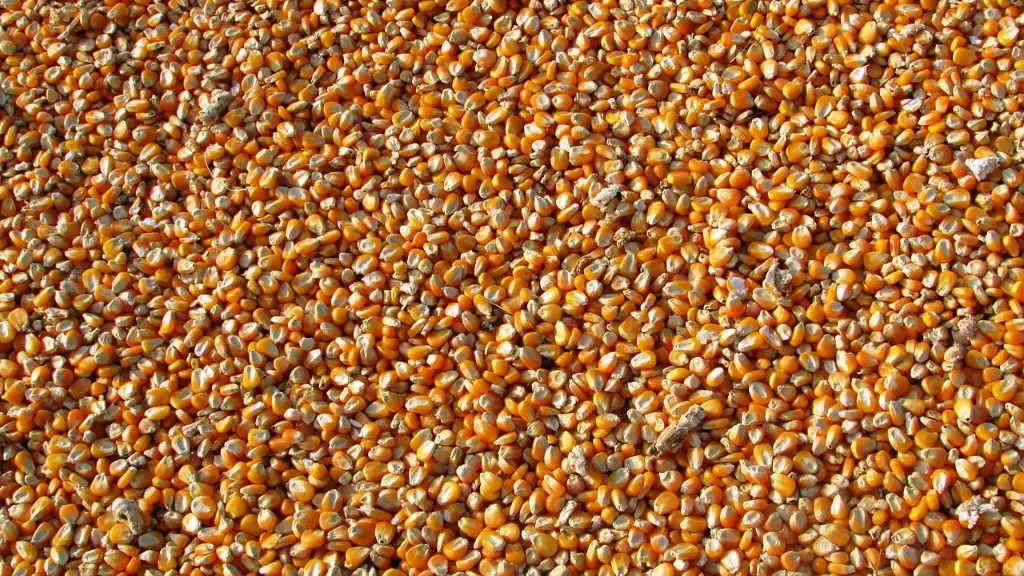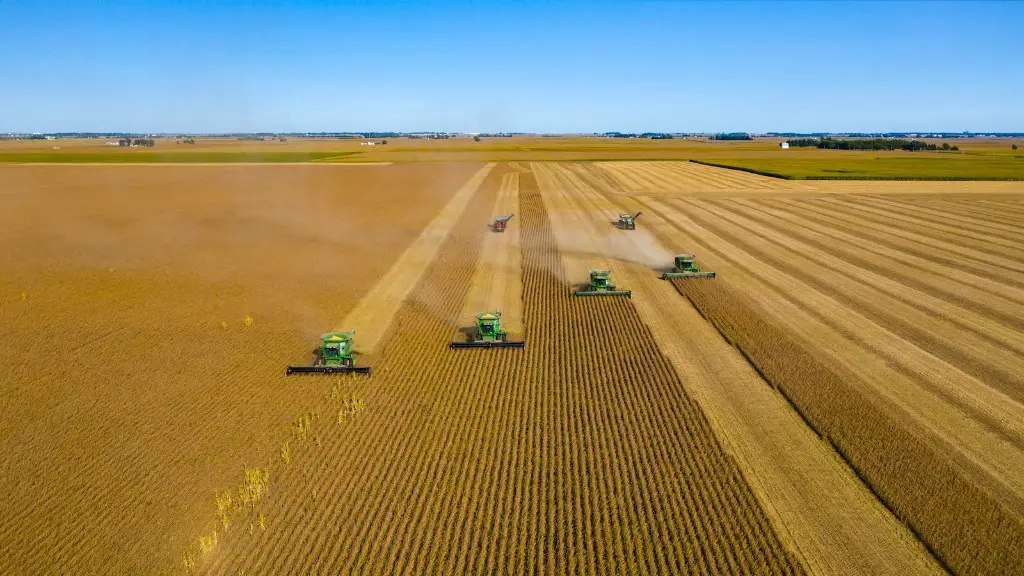In order to understand what DTN stands for in agriculture, it is important to first understand what DTN is. DTN is an acronym for Data Transmission Network. Data Transmission Networks are used to transmit data between two or more points. In the context of agriculture, DTN networks are used to transmit data between farmers and other agricultural professionals. DTN networks are used to exchange information such as weather information, crop information, and market information.
DTN is an agribusiness and financial information provider. It was founded in 1984 as Data Transmission Network before renaming itself DTN in 2003. The company is headquartered in Omaha, Nebraska, USA.
What are DTN core values?
We believe in what we do and have fun doing it. We support our employees and communities by demonstrating mutual respect and prioritizing their well-being. We foster a high-impact, feedback-oriented culture that models respect and inclusion and values diversity across the organization.
DTN was previously owned by Telvent and Schneider Electric, and since 2017 has been owned by Zurich-based TBG. DTN is a global provider of data and analytics solutions for professional and business customers. The company’s products and services are used by customers in a variety of industries, including energy, agriculture, transportation, and government.
How much does DTN cost
Our DTN Ag Weather Tools app is the perfect way to manage weather while you work and protect your business. With our accurate, actionable GPS-based insights, you can be sure that you’re always prepared for whatever the weather may bring. And at just $20 per month, it’s a great value for any business.
DTN is a company that provides information and technology solutions for a variety of industries, including agriculture, refined fuels, commodities and futures trading, public safety, aviation, turf, recreation, construction, and transportation. DTN was founded in 1984 and is headquartered in Omaha, Nebraska. The company’s products and services are designed to help customers make better informed decisions, improve operational efficiency, and manage risk.
What are the four major values?
The Core 4 values are integrity, customer service, respect, and professionalism. We live integrity by telling the truth, valuing the worth of others, honoring diversity and differences, and practicing the Golden Rule.
Integrity, kindness, honesty, and financial security are all important values to have in life. They can help you become a better person and make good decisions. Other people may see these values as your character traits. For example, someone who is always doing the right thing is likely to value integrity.
What does DTN stand for company?
DTN networks are often used in situations where traditional networking infrastructure is unavailable or unreliable, such as in disaster relief or military operations. DTN networks can be either wired or wireless, and can use a variety of technologies for data transfer, such as satellite, HF radio, or mesh networking.
There is no one-size-fits-all answer to this question, as the best way to learn depends on each individual’s learning style and preferences. However, some general tips that may help include: seeking out opportunities to practice and learn from mistakes, listening to feedback and advice from others, and being open to new methods of learning.
Who owns Weatherzone
There is no one perfect way to learn. Some people learn best by listening to lectures and taking notes, while others learn best by doing hands-on activities. Some people learn best in a structured environment, while others learn best by exploring on their own. The best way to learn is the way that works best for you.
Market commodity prices are subject to change due to a variety of factors, including weather conditions, international trade agreements, and global demand. Keep an eye on the markets to ensure you are getting the best possible price for your commodities.
How do you read grain prices?
One way to stay on top of grain prices is to watch the futures markets. The price of a grain futures contract is made up of two components: the cash price and the basis. The cash price is the price of the grain in the physical market. The basis is the difference between the cash price and the futures price.
The basis can be positive or negative. If the basis is positive, it means that the futures price is higher than the cash price. If the basis is negative, it means that the cash price is higher than the futures price.
The basis can also be used to calculate the break-even price for farmers. The break-even price is the price at which the farmer will neither make a profit nor incur a loss. To calculate the break-even price, add the basis to the cash price (if the basis is positive) or subtract the basis from the cash price (if the basis is negative).
In addition to the basis, farmers also need to watch for premium and discounts. Premiums and discounts are added to or deducted from the break-even price to account for the cost of transport and other factors.
Here is a quick reference guide for how to read grain prices:
Cash price =
Corn prices are expected to fall in the next few years. This is good news for consumers who will see lower prices for corn-based products. However, farmers will see lower profits and may have to adjust their operations accordingly.
Is DTN a good company
Thank you for enjoying the great culture here at our company! We are proud to have such an extraordinary team and are happy to hear that you are satisfied with your compensation package. We appreciate your feedback and will continue to work hard to maintain a positive work environment.
DTN/The Progressive Farmer has 125 employees. The company operates through three divisions: Agribusiness Information, Consumer Information, and Business Information. The company was founded in 1885 and is headquartered in St. Louis, Missouri.
What is DTN tabs?
DTN TABS is a great tool for managing product allocation and credit. It offers centralized real-time control, which allows for better monitoring and avoid holding excess inventory.
The field of ethics, or moral philosophy, investigates theories that can systematically describe what makes acts right or wrong. Moral philosophy is usually divided into three categories: metaethics, applied ethics, and normative ethics.
Metaethics is the branch of moral philosophy that deals with the nature of ethics and morality. Metaethics investigates the origin and meaning of ethical concepts. Applied ethics is the branch of moral philosophy that deals with the application of ethical principles to specific problems. Normative ethics is the branch of moral philosophy that deals with the content of moral principles and the criteria for determining what is right or wrong.
Warp Up
DTN stands for Data Transmission Network.
In conclusion, DTN stands for Farmers Business Network, a membership-based organization that provides farmers with data-driven insights and analysis to help them improve their businesses.





